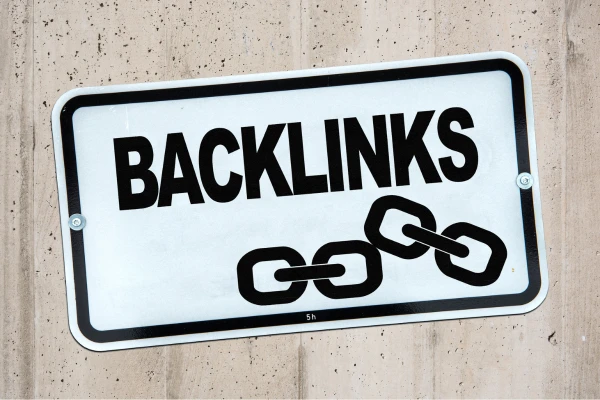What are Subdomains?
Subdomains are extensions of the main domain. They act as separate branches, allowing businesses to separate content, functions, or products/services without purchasing a new domain.
For example: If your main domain is doanhnghiep.com, you can create subdomains like:
- blog.doanhnghiep.com
- support.doanhnghiep.com
- shop.doanhnghiep.com

The Difference Between a Main Domain and a Subdomain
The main domain represents the entire website, while the subdomain is an extension, helping to divide functions or categories. Each subdomain can be configured as a separate website with different content, design, and management systems.
Benefits of Using Subdomains for Business
Organize Specialized and Effective Content
Subdomains help separate content according to specific customer groups or objectives. For example, you can use academy.tenmien.com to provide training materials, while customer.tenmien.com is used for customer service.
Optimize Website Performance
Dividing traffic between subdomains helps reduce the load on the main domain, improve page loading speed, minimize response time, and improve user experience.
Support International or Multilingual Development
Subdomains are very effective when deploying international campaigns. For example:
vn.tenmien.com for the Vietnamese market
en.tenmien.com for the international market
This allows you to customize content, interface, and user experience for each separate market.
Increase Flexibility in Management and Development
Each subdomain can use a different platform, separate development team, and independent content. This is very convenient for large businesses or multi-industry organizations.
Subdomains and SEO: Understand Correctly to Maximize Utilization
Do Subdomains Affect SEO?
There are many opinions surrounding how subdomains affect SEO. According to Google, both subdomains and subfolders are evaluated as separate entities. However, if optimized correctly, subdomains can still rank well in search results.
When Should You Use a Subdomain Instead of a Subfolder?
- When the content needs to be completely separated technically or functionally
- When you want to create a sub-brand or independent category
- When you need to build a landing page or microsite for a specific marketing campaign
Things to Note When Optimizing SEO for Subdomains
- Ensure quality content that is not duplicated with the main domain
- Build backlinks for each subdomain as an independent site
- Submit a separate sitemap for each subdomain to Google Search Console
- Configure HTTPS for each subdomain to ensure security

How to Create and Manage Subdomains for Business
Create Subdomains Through a Hosting Provider
Most hosting providers support creating subdomains very easily. Just log in to Cpanel or the administration page, go to the “Subdomain” section, enter the name and point to the corresponding subfolder.
Create Subdomains Using DNS
You can create subdomains via DNS by adding an A or CNAME record pointing to the corresponding IP or address.
Manage Subdomains Effectively with a CMS System
CMS systems like WordPress, Drupal, or Joomla all support multi-site or installation on separate subdomains. This makes it easy to update content, maintain, and develop subdomains as an independent website.
Common Applications of Subdomains in Business
Blog Page, Sharing Knowledge
Use blog.tenmien.com to build an in-depth content ecosystem, increasing organic traffic from Google.
Customer Service Portal
support.tenmien.com or help.tenmien.com is an ideal place for businesses to provide guidance, answers, and customer care.
Recruitment or Internal Website
careers.tenmien.com helps businesses attract professional personnel. internal.tenmien.com can serve as an internal portal for employees.
Landing Page or Microsite per Campaign
Subdomains like sale.tenmien.com or event.tenmien.com serve specifically for each marketing campaign, helping to increase measurement efficiency and traffic routing.
Pros and Cons of Using Subdomains
Pros
- Clearly separate functions and content
- Easy and independent management
- Suitable for multilingual or multi-country websites
- Easy to expand by field
Cons
- Need to manage SEO separately for each subdomain
- Additional administrative and technical resources are required
- Can cause internal link dilution if not structured well

Strategies for Leveraging Subdomains to Develop a Brand
Positioning a Sub-Brand
Subdomains can become a small brand within a larger brand. For example, academy.tenmien.com can become a training center widely known in the industry.
Building a Specialized Community
Subdomains like forum.tenmien.com are where you can build a loyal user community, contributing to increasing brand value.
Expanding the Service Ecosystem
Businesses can create multiple subdomains such as:
booking.tenmien.com for scheduling
shop.tenmien.com for online sales
partner.tenmien.com for partners
Each subdomain acts as a separate branch, helping to expand the brand's influence.
Common Mistakes When Using Subdomains
Not Optimizing SEO for Each Subdomain
Many businesses think that subdomains inherit all the power from the main domain, but in reality, Google evaluates them as separate entities.
Illogical URL Structure
Subdomains need to be short, easy to remember, and clearly express the purpose. Avoid using long, confusing, or irrelevant phrases.
Not Using SSL or Poor Security
Each subdomain needs its own security certificate to ensure user safety and maintain good rankings on Google.
Subdomains and Marketing Strategy
Subdomains for Email Marketing
Creating separate subdomains like email.tenmien.com helps to streamline mail sending, avoid being marked as spam, and easily track effectiveness.
Advertising and Tracking Integration
Subdomains can be used to A/B test ads, analyze user behavior, or deploy more effective tracking tools.
Subdomains in Remarketing Campaigns
Through subdomains, you can create exclusive experiences for potential customer groups, personalize content, or offer exclusive offers.

The Future of Subdomains in the Digital Age
Subdomains and AI/Chatbots
Many businesses are using subdomains to deploy chatbots or AI to support customers, such as: chat.tenmien.com.
Cloud Technology and Multi-Platform Integration
Subdomains help integrate flexibly with cloud computing platforms, mobile applications, APIs, or automation systems in the business.
Subdomains and the Web3 Trend
In the decentralized era, separating services via subdomains will help businesses easily apply new technologies without affecting the main system.
Subdomains are a powerful tool if businesses know how to leverage them correctly. Not only do they help separate content and manage it easily, but subdomains also significantly support SEO, marketing campaigns, and long-term brand building. Whether you are a small business or a large corporation, you can flexibly apply subdomains for sustainable development in today's digital environment.

Contact Information
- MIMA Trading Service Company Limited
- Address: 36/1/2 Phung Thi Chuyen, Thoi Tam Thon Commune, Hoc Mon District, Ho Chi Minh City
- Phone: 0909 035 333
- Website: https://mimadigi.com
- Email: info.mimadigi@gmail.com


























Share your review